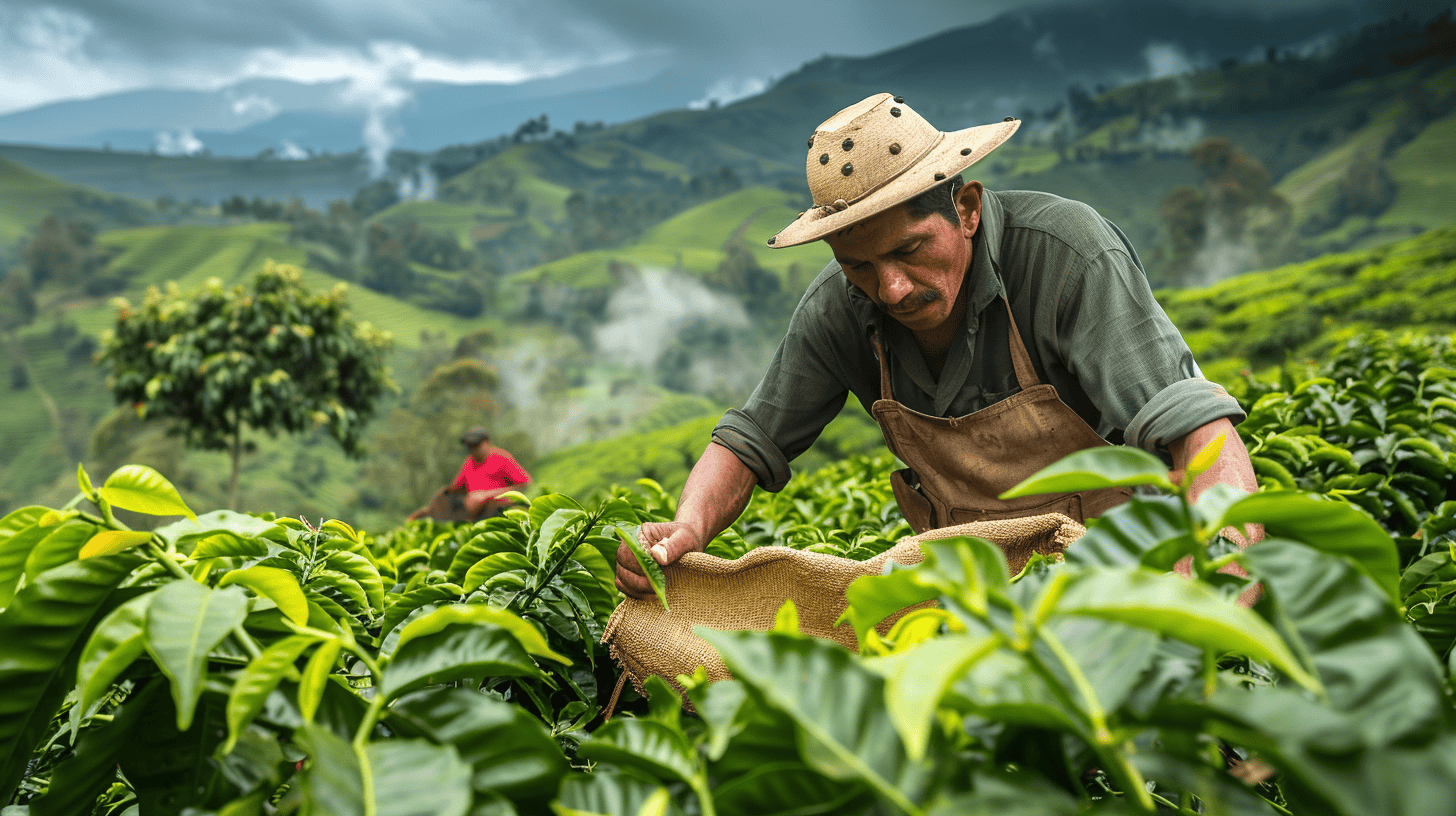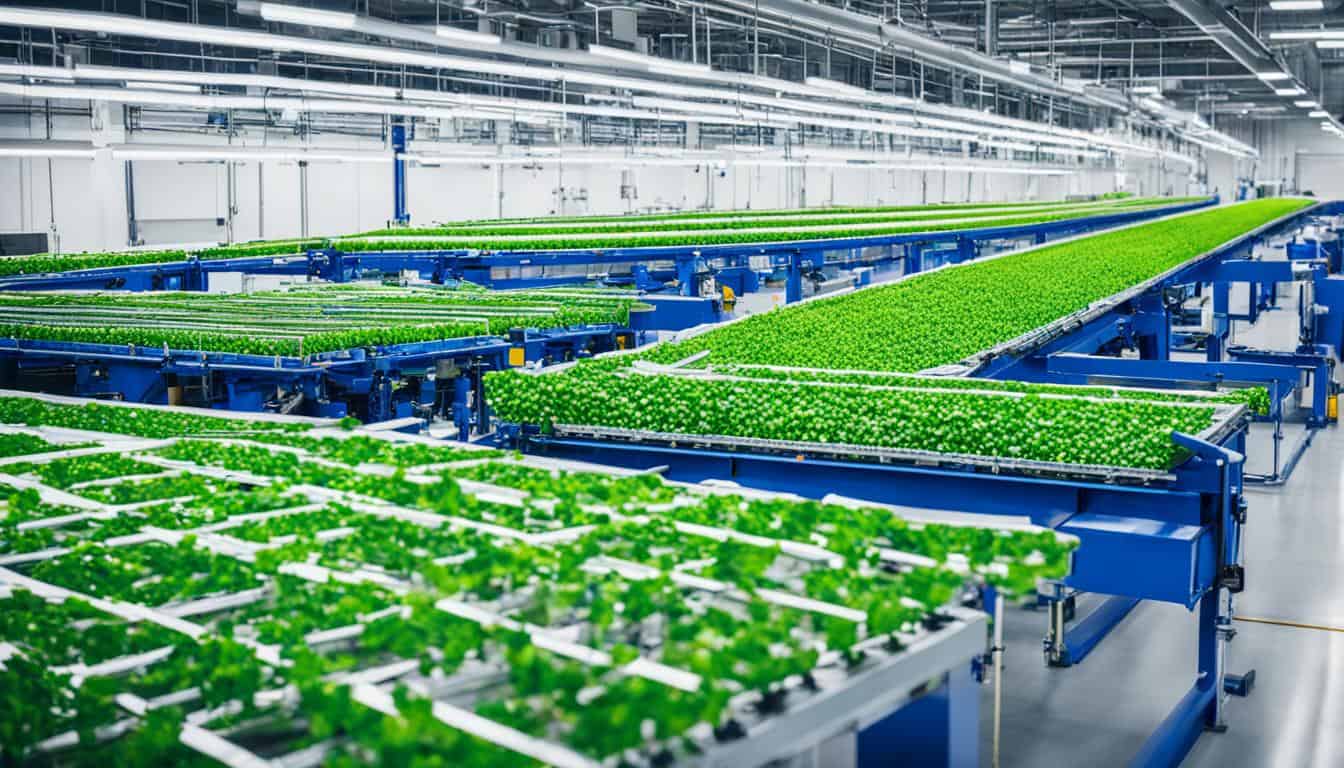I’m thrilled to guide you along the path to becoming Fair Trade Certified. This significant step reflects a company’s commitment to responsible, sustainable practices that place a premium on transparency and trust. The Fair Trade Certified label isn’t just a symbol – it’s an assurance to consumers that you subscribe to rigorous standards that bolster sustainability, cultivate safe workplaces, maintain environmental stewardship, and advocate transparent supply chains.
Earning a license to trade Fair Trade Certified goods through internationally recognized brands like Fair Trade USA. And it’s far from a fruitless endeavor. Abiding by their Trade Standard brings your brand’s values into a brighter light, accelerates supply chain robustness, fosters consumer loyalty, and unlocks the door to an array of new markets.
Key Takeaways
- Achieving Fair Trade Certification for Products is a strong indication of your commitment to transparency in business and sustainable and ethical practices.
- Becoming fair trade certified requires adherence to the rigorous Fair Trade USA’s Trade Standard.
- Accepting these standards not only enhances a brand’s values but also grants supply chain resilience, the ability to draw in devoted consumers, and exposes you to new, untapped markets.
- The Fair Trade Certification process keeps a keen eye on crucial global issues such as sustainable development, fair pay, and safe work environments.
- Commitment to Fair Trade is not an empty gesture – it’s a powerful tool for business development and a positive contribution to the worldwide community.
Understanding Fair Trade Certification and Its Global Impact
As more businesses strive for ethical practices and sustainability, Fair Trade Certification has emerged as a significant pillar, carrying considerable weight in terms of its global impact. Providing a roadmap for sustainable development, this certification plays a momentous role in shaping the livelihoods of workers and influencing the global fair trade community. Let’s explore further how Fair Trade Certification supports sustainable development and advocates for worker rights.
The Role of Fair Trade Certification in Promoting Sustainable Development
The essence of Fair Trade Certification lies in promoting sustainable development. Industries and businesses that embrace this certification commit to building ecological balance, reducing poverty, and fostering social advancement. These certified businesses form long-term, direct trading partnerships that place the welfare of artisans and farmers at the heart of their operations.
In essence, sustainable development through Fair Trade Certification is not just a philosophical concept, but a tangible reality driving change in global trade dynamics.
How Fair Trade Certification Advocates for Livelihood and Worker Rights
At a granular level, Fair Trade Certification is instrumental in protecting worker rights and securing a respectable livelihood for laborers. Joining the certified fair trade community means prioritizing safety, fair wages, and dignified working conditions. Workers within Fair Trade Certified organizations enjoy safe, discrimination and harassment-free environments with the added advantage of capacity building opportunities.
This certification brings the global impact of fair trade certification into sharp focus, explicitly demonstrating that ethical business practices can engender significant positive social ramifications.
| Aspect | Role in Sustainable Development | Impact on Livelihood and Worker Rights |
|---|---|---|
| Fair Trade Certification | Encourages ecological balance and poverty reduction | Promotes safe working conditions and fair wages |
| Global Impact | Transforms trade dynamics, fostering global development | Amplifies worker rights on a global scale |
All in all, the certification symbolizes a commitment to sustainability and worker rights, projecting a firm’s ethical stance while redefining the scope and impact of what it means to be a responsible business entity.
What is Fair Trade USA’s Trade Standard?
Fair Trade USA’s Trade Standard is a comprehensive guideline, an integral part of the fair trade certified™ program, that sets the path for businesses to ethical and transparent trading practices. It outlines crucial aspects like economic development, product traceability, and trade standard compliance, making the Trade Standard a benchmark for fair trade practices.
The Fair Trade USA’s Trade Standard comprises three distinct modules, each focusing on essential factors.
- Module 1 sets out the general requirements related to licensing rights.
- Module 2 revolves around economic development and includes facets like Fair Trade Premiums and minimum price requirements.
- Module 3 emphasizes the importance of product traceability in the trade process.
By adhering to the Trade Standard, businesses ensure the practices in line with the principles of fair trade, helping them become licensed traders in the fair trade market. These principles help businesses offer their consumers an added assurance about the product’s ethical sourcing, contributing to the consumer’s trust in the brand.
The Fair Trade USA’s Trade Standard does more than just outline trade requirements—it paves the path for sustainable development and economic growth, demonstrating how business can be nobly done.
| Module | Primary Focus |
|---|---|
| Module 1 | Licensing rights |
| Module 2 | Economic development |
| Module 3 | Product traceability |
By meeting the trade standard compliance, businesses not only offer assurance to their consumers but also contribute to a larger cause of sustainable and ethical trading. The Fair Trade USA’s Trade Standard underpins a brand’s dedication towards responsibility and transparency, instilling trust and fostering goodwill amongst consumers for the brand.
Becoming a Fair Trade Certified Business Partner
In the quest to become a fair trade certified business partner, it’s crucial to understand that brands aren’t directly certified. Instead, the certification is specially reserved for the producers such as farms or factories at the beginning of the supply chain. Businesses are pursued for licensing—an important step in the certification against fairtrade standards.
The journey entails strict licensing registration processes, which necessitates sourcing products from certified providers. In essence, the businesses, rather than producing the goods, add value to the goods produced by the certified suppliers. They ensure that the products pass through a supply chain where each link is certified and verified.
Every business, seeking to become a Fair Trade Certified business partner, must adhere to the fair trade certified label’s strict guidelines and diligent verification process.
Let’s delve into the key steps towards becoming a fair trade certified business partner:
- Initiate Contact: Begin by contacting Fair Trade USA to express your company’s interest in obtaining a license.
- Application Submission: You will be required to complete and submit an application form, detailing your business’s objective, purpose, and commitment to fair trade practices.
- Licensing Agreement: Once your application is approved, you will enter a licensing agreement that officially grants you the right to use the Fair Trade Certified label.
- Product Development: You are expected to work closely with certified suppliers for your product line. Remember, it’s essential to ensure that all products bearing the Fair Trade logo are sourced from certified producers.
- Maintain Compliance: Regular audits and check-ins are conducted to ensure you maintain consistent compliance with fair trade standards and guidelines.
Becoming a Fair Trade-certified business partner is no cakewalk—it requires diligence, commitment, and a firm belief in ethical business practices. However, the advantages are worthwhile and far-reaching, and they provide an invaluable contribution to creating a more equitable global market.
The Certification Process: Audits and Compliance with Fairtrade Standards
Attaining a Fair Trade certification is a rigorous process designed meticulously to ensure all operations align thoroughly with the set Fairtrade standards. Such a certificate is a testament to a brand’s dedication to ethical sourcing and its commitment to making a positive global impact. At the heart of this certification process are audits, rigorous checks, and ongoing compliance monitoring.
What an Audit Entails and its Importance for Certification
A central component of the certification process is the audit, implemented by independent auditors sanctioned by FLOCERT. This ISO 17065-accredited body inspects and verifies a company’s compliance with Fairtrade standards. Their investigation extends throughout the supply chain, ensuring conformity with Fairtrade minimum price requirements, ethical trading principles, worker rights protection, and various other key aspects that uphold transparency and sustainability.
The Continuous Journey of Adhering to Rigorous Standards
The journey to becoming Fairtrade certified doesn’t stop at the successful completion of the initial audit. This certification is an ongoing process that requires companies to maintain continuous compliance with Fairtrade standards. Regular audits are conducted to reevaluate the company’s commitment to ethical sourcing claims and guarantee their adherence to the predefined norms and standards. Hence, the certification process is a vigorous one, enacted to bolster the journey toward sustainability, transparency, and fairness in trade practices.
Why Fair Trade Certification Matters for Your Brand
In an ever-evolving global market, consumer perceptions significantly influence brand affinity and market influence. Among the quintessential factors that resonate with modern consumers is the commitment to sustainability, ethical practices, and transparency in sourcing products and services. Here lies the import of Fair Trade Certification for businesses seeking sustainable growth and market recognition.

“When customers see the Fair Trade Certified label, they see a brand they can trust. Not just a product on a shelf, but a story of high-level accountability and positive impact.”
Becoming Fair Trade Certified verifies a brand’s sustainable sourcing claims , thereby reinforcing brand trust. It announces to the world that your business values the very tenets of ethical commerce – respect for workers’ rights, adherence to fair trade practices, and commitment to maintaining a sustainable environment. By doing so, your brand not only stands as an advocate of ethical trading but also gains recognition from a global audience increasingly devoted to sustaining such practices.
Representing as a globally recognized sustainable sourcing hallmark, the Fair Trade Certified label lends credence to your business efforts to maintain transparency in sourcing and uphold ethical standards. It indeed aligns with the growing consumer consciousness and demand for brands that practice responsible sourcing and contribute positively to the environment.
More so, Fair Trade USA is an ISEAL Code-Compliant member. Its affiliation with the global membership association for credible sustainability standards further solidifies the credibility of businesses that obtain its certification, providing another facet to the brand trust it imparts.
“Remember, every business has a story to tell, and with Fair Trade Certification, you can ensure yours is one that drives global impact, consumer trust, and market growth.”
In the end, integrating certified Fair Trade practices into your business operations is an investment that pays dividends in increasing brand trust and recognition, fostering customer loyalty, and positively impacting global sustainability objectives.
Benefits of the Fair Trade Certified Label for Producers and Consumers
Consumer trust is paramount in today’s competitive market. Brands that demonstrate their commitment to ethical trade practices not only increase customer loyalty, but also contribute to sustainable economic growth and community development. This relies heavily on obtaining the fair trade certified label.

The Fair Trade Certified label stands as a beacon of trust for consumers looking to make ethical purchasing choices. It’s a visual confirmation of a brand’s dedication to responsible trade practices that safeguard both producers and their communities.
Building Trust with Consumers Through Fair Trade Practices
Fairtrade practices focus on providing fair wages, ensuring safe working conditions, promoting sustainable farming methods, and fostering transparency throughout the supply chain. When a brand carries the fair trade certified label, it signifies that it is adhering to these ethical practices, and consumers can shop with a clear conscience.
Through Fair trade practices, consumers are assured that their purchases directly contribute to the welfare and development of small-scale producers and workers in economically disadvantaged regions around the world.
Supporting Community Development with Fair Trade Premiums
Among the many benefits of the fair trade certified label is the implementation of the Fair Trade Premium. This is an extra sum of money, over and above the fair price for the goods, that is invested in social, economic and environmental development projects by the local community. From improved schools and healthcare facilities to renewable energy systems and skill improvement programs, the Fair Trade Premium acts as a catalyst in building resilient communities.
The collective power of ethical purchasing decisions can drive significant change, aiding in community development, and securing a better future for producers and their workers.
Crucially, the Fair Trade Certified label fosters a reciprocal relationship between consumers and producers. Consumers gain access to high-quality products that are sourced responsibly, while producers and their communities receive tangible benefits that improve their quality of life. Truly, it’s a win-win situation for everyone involved.
Expanding the Reach: The Variety of Fair Trade Certified Products
The market for fair trade is expanding rapidly to include a variety of products. Companies are continuously innovating and venturing into new categories to meet the growing demand for fair trade certified products.
Typically, when we think of fair trade, we think of coffee or cocoa. Today, however, fair trade goes beyond these traditional categories, enveloping a multitude of consumer packaged goods. From your morning coffee and refreshing tea to your favorite chocolate bar and staple grains, fair trade certification has made its mark across different industry verticals.
But why stop at these?
Venturing into new domains, fair trade has now marked its presence in areas like dairy and seafood. This demonstrates the scope for innovation while also showing the production of these items can be made more sustainable, ethical, and fair towards the producers.
With the growing variety of fair trade certified products, businesses can better accommodate the demand for sustainable consumer goods. Not only does this add to their unique selling proposition but also sends out a clear message of their commitment towards ethical trade practices.
Let’s have a detailed look at some prime categories of Fair Trade Certified Products:
| Product Category | Examples |
|---|---|
| Coffee | Beans, grounds, instant |
| Seafood | Shrimp, salmon, tuna |
| Consumer Packaged Goods | Chocolate, sugar, tea, spices |
| Dairy | Milk, cheese, yogurt |
With a broadened scope of fair trade certification, businesses can diversify their offering aligning with the ethical trade trend. It offers immense opportunity for market penetration and greater consumer reach.
The rising variety of fair trade-certified products reflects the increasing awareness and demand for sustainable practices in production. It stands as a testament to businesses’ commitment to their sustainability goals and ethical practices. Interested businesses here have an opportunity to align with this increasing demand and make a positive impact. Further fostering this trend stands to benefit everyone – producers, businesses, and consumers alike.
Ensuring Transparency and Traceability in the Supply Chain
In today’s world, consumers are demanding more accountability from the brands they purchase from. They want assurance that their products are responsibly sourced and linked to sustainable and ethical business practices. One key area where brands can demonstrate this commitment is through their supply chains. By prioritizing transparency and traceability, brands can build trust and loyalty with their customers. This is where the importance of Fair Trade USA Certification comes in.

How Fair Trade USA Certifies Transparent Supply Chains
The role of Fair Trade USA in certifying transparent supply chains is vital. It requires businesses to submit regular transaction reports that demonstrate their adherence to fair trade standards. This not only builds stronger business relationships but also allows consumers to validate that their purchased products have been sourced responsibly.
Through Fair Trade USA certification, businesses can achieve robust supply chain management, which significantly underscores the credibility of the fair trade label and maintains the integrity of certified products.
Importance of Product Traceability for Fair Trade Certification
Product traceability is another significant aspect of Fair Trade Certification. It allows consumers to follow the journey of their product from its origin to their hands. Plus, it’s not just comforting for consumers – it’s also informative.
This is an opportunity for businesses to educate customers on their ethical sourcing practices and commitment to sustainable business procedures.
- Product traceability helps businesses monitor their supply chains more closely and address any issues promptly, which can potentially tarnish their reputation or violate fair trade standards.
- Transparent supply chains also make the tracking of products smoother during recalls or other issues.
- Furthermore, product traceability provides businesses with insights to optimize their supply chains and improve products over time.
By ensuring transparency and traceability in supply chains, businesses not only build a strong relationship with their customers but also establish their commitment to responsible business practices and the integrity of their products.
The Economic and Environmental Pillars of Fair Trade Certification
Economic and environmental considerations are the backbone of fair trade. Both form indispensable pillars that ground the fair trade certification model. A primary economic component within this certification harnesses the fair trade premium. This premium acts as a powerful economic benefit, granting fair price thresholds and sustainable income strategies for producers.

The certification also underlines the importance of the environment by requiring strict adherence to environmental and safety standards. These economic and environmental standards ensure a sustainable sourcing model, seeking to uplift communities while simultaneously shielding the environment.
- Fair Trade Certified™ goods symbolize this ethos, representing a line of products that are economically fair and environmentally considerate.
- They harmonize profit-making with responsible sourcing, thus upholding the Fair Trade philosophy.
Indeed, this comprehensive approach to certification ensures that these economically and environmentally sound principles echo throughout the supply chain. It is not just about the end product reaching the consumer. It is about creating a positive impact across all stages of production, influencing communities, and contributing meaningfully to social and environmental welfare.
Take pride in knowing that your choice of Fair Trade Certified™ goods truly makes a difference!
Accessing New Markets: Fair Trade Certification as a Business Strategy
As a brand looking to excel in the competitive consumer goods industry, making the ethical and conscious choice to work towards securing a Fair Trade certification can be a strategic move with wide-ranging implications.
Not only does it exemplify your dedication to sustainable, equitable business practices, but it also serves as a powerful distinction marker within the market. Let’s take a closer look at how understanding consumer demand for ethically sourced products and leveraging Fair Trade Certification can provide you with an edge for market differentiation.
Understanding Consumer Demand for Ethically Sourced Products
Consumer behavior has significantly evolved over the past few years, with an increasing number of individuals prioritizing ethically sourced products. Shoppers today are willing to pay a premium for products that align with their personal values, reflecting their commitment to social responsibility.
Therefore, businesses that cater to these expectations are poised to access new markets and tap into this growing consumer demand. Seminal research in consumer behavior corroborates this point, as shown in the table below:
| Study | Key Finding |
|---|---|
| Cone Communications CSR Study, 2017 | 87% of consumers will purchase a product because the company stood for an issue they care about |
| Nielsen Global Corporate Sustainability Report, 2015 | 66% of consumers are willing to pay extra for products from companies committed to positive social and environmental impact |
| EY’s Future Consumer Index, 2020 | 63% of consumers surveyed reported increasing their spending with purposefully sustainable brands |
Leveraging Fair Trade Certification for Market Differentiation
Within an increasingly saturated market, brands need to differentiate themselves from their competitors. Fair Trade Certification not only signals to consumers that your products are ethically sourced, but it also embodies your brand’s commitment to transparency, equity, and sustainability – factors that are increasingly prioritized by consumers. This certification consequently serves as not only a badge of honor but also an influential business strategy.
By positioning your brand as one that values people and the planet, you are appealing to conscious consumers and differentiating your offerings within the market.
Conclusion on Fair Trade Certification for Products
In the realm of responsible sourcing, achieving a Fair Trade Certification is a testament to a business’s commitment to ethical and sustainable practices. This globally recognized certification, backed by the stringent standards set by the Fair Trade Federation, demands an unwavering dedication to the fair treatment of workers and respect for environmental guidelines.
As companies navigate the complexities of sustainable development, Fair Trade Certification seeks to balance equity and progress. It upholds rigorous fair trading terms that advocate for producers to receive fair compensation, driving sustainable change across various industries.
With the rise of conscious consumerism, more individuals are favoring brands that align with their values. Businesses that meet and exceed Fair Trade Standards illustrate their dedication to transparency, encouraging a global shift towards more sustainable and responsible business operations. From producers to consumers, the ripple effect of Fair Trade is vast, shaping a brighter and more equitable future for all.





Leave a Reply